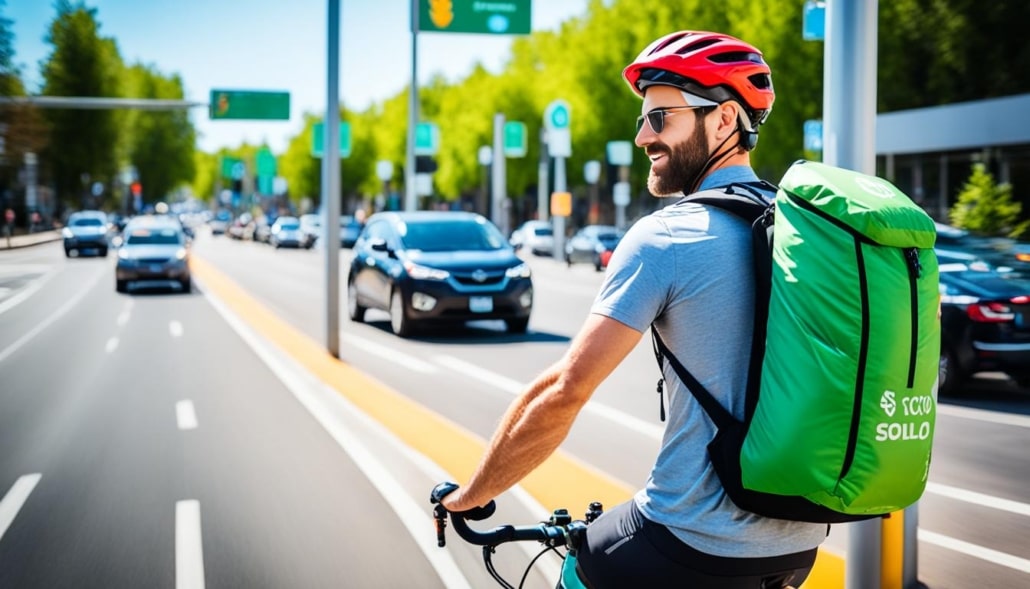Budgeting for One: How to Plan a Solo Travel Budget
When it comes to solo travel, planning a budget is essential to ensure a smooth and financially responsible journey. Managing your finances will not only help you stay on track but also allow you to make the most of your solo adventure. Whether you’re jetting off to a tropical paradise or exploring the streets of a vibrant city, having a well-thought-out budget will give you peace of mind and the freedom to truly enjoy your trip.
Key Takeaways:
- Creating a solo travel budget gives you control over your expenses and helps you avoid overspending.
- Calculate the cost of transportation, accommodation, food, entertainment, and miscellaneous expenses to develop a realistic budget.
- Consider ways to avoid or minimize single supplements when booking accommodations.
- Research and plan for startup costs such as luggage, travel gear, vaccinations, visas, and insurance.
- Save on transportation by opting for budget-friendly options like public transportation or shared vans.
Tips for Avoiding Single Supplements and Saving on Accommodation
One of the biggest challenges for solo travelers is dealing with single supplements charged by hotels and tour operators. These additional fees can significantly increase the overall cost of accommodation. However, there are several strategies you can implement to avoid or minimize single supplements, allowing you to save money and make the most of your solo travel budget.
Firstly, look for tour companies that cater specifically to solo travelers. Some of these companies offer options to share rooms with other solo travelers, which can help you avoid single supplements altogether. Additionally, some tour operators may waive single supplements during certain times of the year, so be sure to inquire about any available discounts.
Consider staying in hostels that offer private rooms or smaller accommodations. This can be a cost-effective alternative to traditional hotels, as hostels often provide lower-priced options for solo travelers. Additionally, many hotels have single rooms available, which are specifically designed for solo travelers and do not include a single supplement.
If you’re open to unique and minimalist experiences, consider staying in capsule hotels. These accommodations provide affordable, compact spaces that are perfect for solo travelers. While the rooms may be smaller, they offer a comfortable and budget-friendly option for those looking to save on accommodation costs.
Furthermore, explore alternative opportunities for accommodation that can help you save money. Volunteering or participating in home-sharing programs can provide you with free or low-cost accommodation options while immersing you in the local culture and community. Websites like WWOOF (World Wide Opportunities on Organic Farms) and Couchsurfing offer opportunities for travelers to connect with locals and find accommodation without the hefty price tag.
By being resourceful and exploring different options, you can significantly reduce your accommodation costs as a solo traveler. This allows you to allocate more of your budget towards other aspects of your trip, such as transportation, tours, and activities.
“Choosing accommodations strategically can make a big difference in your solo travel budget. By avoiding single supplements and finding affordable options, you can save money and make your budget go further.”
Comparison of Accommodation Options for Solo Travelers:
| Accommodation Option | Description | Cost |
|---|---|---|
| Traditional Hotels | Standard hotel rooms with single occupancy | High – Single supplement may apply |
| Hostels | Private rooms or shared dormitories | Moderate – Single supplement may not apply for private rooms |
| Capsule Hotels | Compact individual sleeping pods | Low – No single supplement |
| Volunteering/Home-sharing | Stay with locals for free or at a reduced cost | Low – No single supplement |
As shown in the table above, opting for hostels, capsule hotels, or alternative accommodation options like volunteering or home-sharing can help you avoid or minimize single supplements. These choices provide affordable alternatives without compromising your solo travel experience.
Planning Your Travel Budget: Factors to Consider
When embarking on your travel adventure, careful budget planning is essential to ensure you can fully enjoy your experiences without financial stress. To create a comprehensive travel budget, you need to consider several important factors that will impact your expenses. By taking the time to analyze startup costs and cost of living, you can effectively allocate your resources and make informed financial decisions.
Startup Costs
Before you set off on your journey, it’s important to account for the upfront expenses associated with travel. These startup costs include items such as luggage, travel gear, vaccinations, visas, and insurance. While they may seem insignificant individually, they can quickly add up and significantly impact your budget. Therefore, it’s crucial to budget for these expenses accordingly to avoid any financial surprises along the way.
Cost of Living
Another crucial factor to consider when planning your travel budget is the cost of living in different countries or regions you plan to visit. The cost of accommodation, meals, transportation, and other daily expenses can vary widely from one destination to another. To estimate and plan your expenses accurately, take advantage of websites like Budget Your Trip and Expatistan, which provide valuable information on travel costs specific to each location. By researching and understanding the cost of living in your desired destinations, you can make realistic budget projections.
Resist the temptation to oversimplify or generalize the cost of living for a specific country or region, as there can be significant variations within different cities or even neighborhoods. Be prepared to adjust your budget based on the specific locations you plan to visit.
Equipped with this knowledge, you’ll be able to plan your travel budget effectively and allocate your funds in a way that aligns with your priorities and desired experiences. A comprehensive travel budget not only helps you stay within your financial means but also allows you to make the most of your adventure without compromising on experiences or missing out on hidden gems.
Tips for Saving on Transportation, Tours, and Activities
Transportation is undeniably a crucial aspect of solo travel, and being mindful of your expenses in this area can help you stretch your budget further. By exploring cost-effective transportation options and taking advantage of tour discounts, you can make the most of your solo travel adventure without breaking the bank.
Save on Transportation Costs
When it comes to getting around during your solo journey, there are several ways to minimize transportation costs:
- Instead of relying solely on taxis or ride-sharing services like Uber, consider using shared vans or public transportation. These options are often more budget-friendly and can offer a unique local experience.
- Research the availability and affordability of public transportation in your chosen destination. Many cities have efficient and affordable public transit systems that can help you navigate your way without spending excessively.
“Choosing cost-effective transportation options can have a significant impact on your overall travel expenses.”
Maximize Your Budget with Tour Discounts
Exploring new destinations and indulging in exciting activities is undoubtedly a highlight of solo travel. Here are some tips to save on tours and activities:
- Look for free or low-cost tours, such as walking tours or local meetups. These opportunities allow you to immerse yourself in the destination, interact with fellow travelers, and learn about the culture without incurring additional expenses.
- Consider booking activities in advance to take advantage of discounts and skip the lines. Many online platforms offer exclusive deals and promotions for attractions and tours.
“By being strategic and resourceful in your tour choices, you can enjoy unforgettable experiences while keeping your travel budget intact.”
Remember to always prioritize your safety and well-being when selecting transportation options and participating in tours and activities. Research the reputation and reviews of service providers before making any commitments. With careful planning and a bit of creativity, you can save on transportation costs and tour expenses, allowing you to fully embrace the solo travel experience.
Conclusion
Budgeting for solo travel is crucial to ensure a fulfilling experience without overspending. By carefully planning your finances and considering factors such as accommodation costs, transportation expenses, and tour discounts, you can create a realistic travel budget that allows you to make the most of your solo journey.
Flexibility and openness to trade-offs are key when managing your solo travel budget. By prioritizing your spending and being adaptable, you can optimize your resources and stay within your financial means. Remember, it’s not about depriving yourself of experiences, but rather making smart choices that align with your budget.
Proper financial planning empowers you with the confidence to embark on your solo adventure. Knowing that you have a solid budget in place relieves the stress of unexpected expenses and allows you to fully embrace the freedom and excitement of solo travel.
So start planning your solo travel budget today. With careful consideration of costs, strategic decision-making, and an open mind, you can embark on a solo travel experience that is both enriching and financially sustainable.
FAQ
Why is it important to create a solo travel budget?
Creating a solo travel budget is crucial for planning your trip. It allows you to have control over your expenses and ensure that you don’t overspend.
What are some strategies for budgeting effectively for solo travel?
Start by calculating the cost of transportation and accommodation, which are usually the biggest expenses. Factor in other expenses such as food, entertainment, and miscellaneous items like travel insurance and shopping.
How can I avoid or minimize single supplements charged by hotels and tour operators?
Look for tour companies that cater to solo travelers and offer options to share rooms or waive single supplements. Consider staying in hostels that offer private rooms or look for hotels that have single rooms available. Another option is to stay in capsule hotels, which provide compact and affordable accommodation. Additionally, you can explore opportunities for free accommodation by volunteering or participating in home-sharing programs.
What factors should I consider when planning my travel budget?
Start by accounting for the startup costs, which include expenses like luggage, travel gear, vaccinations, visas, and insurance. Additionally, factor in the cost of living in different countries or regions you plan to visit.
How can I save on transportation expenses during solo travel?
Instead of taking taxis or Uber, opt for shared vans or public transportation, which are more budget-friendly options. When it comes to tours and activities, look for free or low-cost options such as walking tours or local meetups. Additionally, consider booking activities in advance to take advantage of discounts and skip the line.






Leave a Reply
Want to join the discussion?Feel free to contribute!